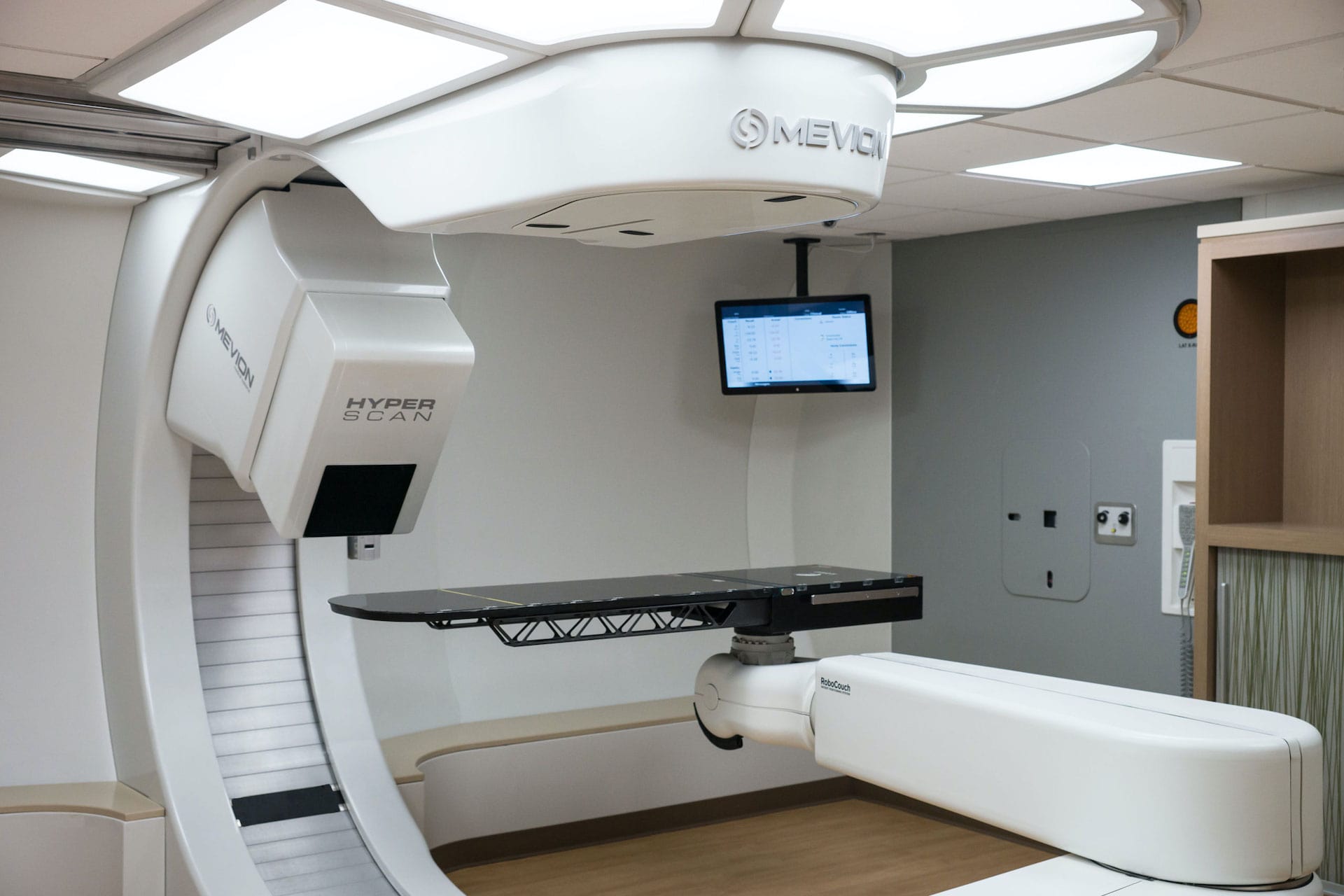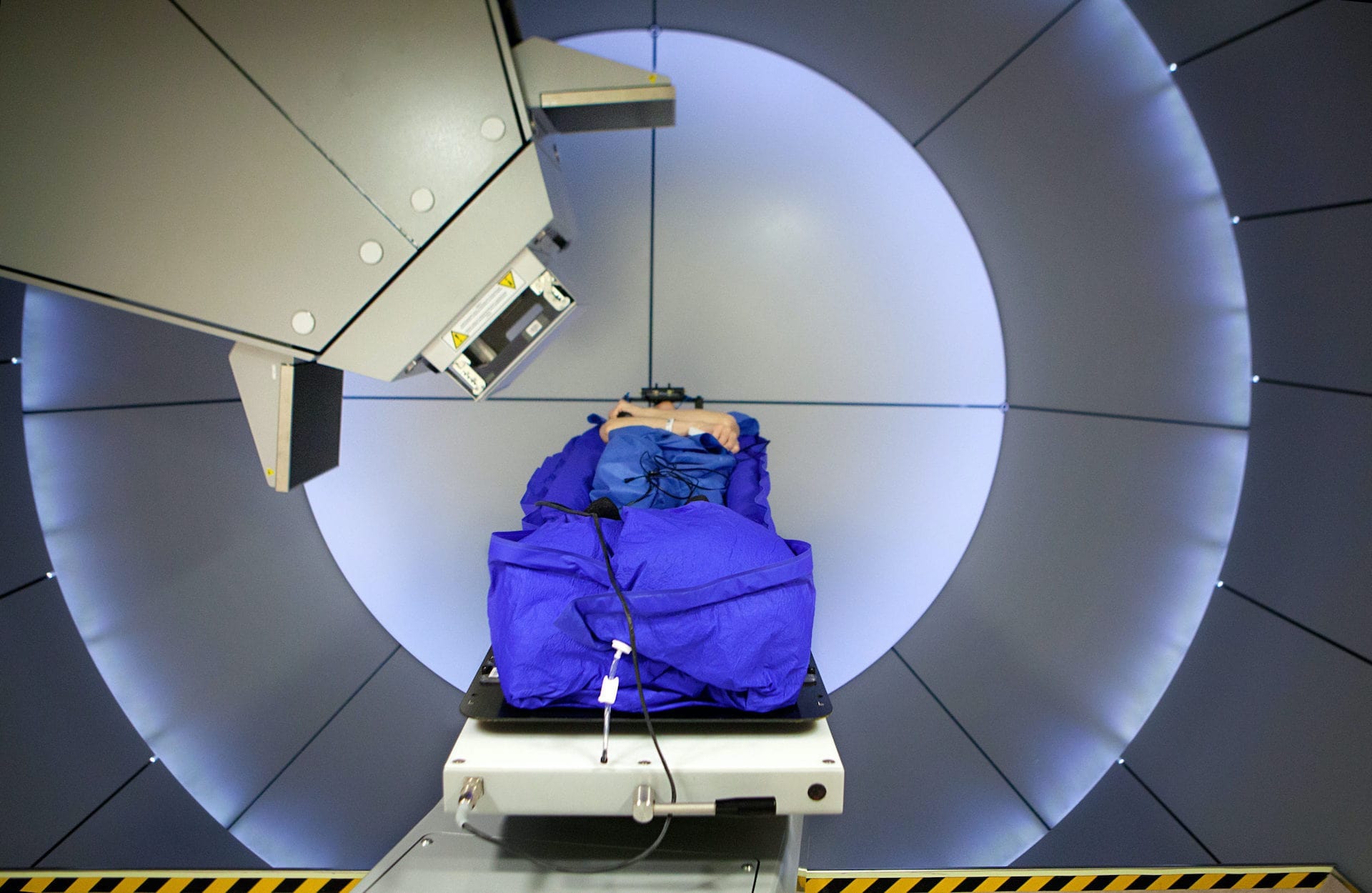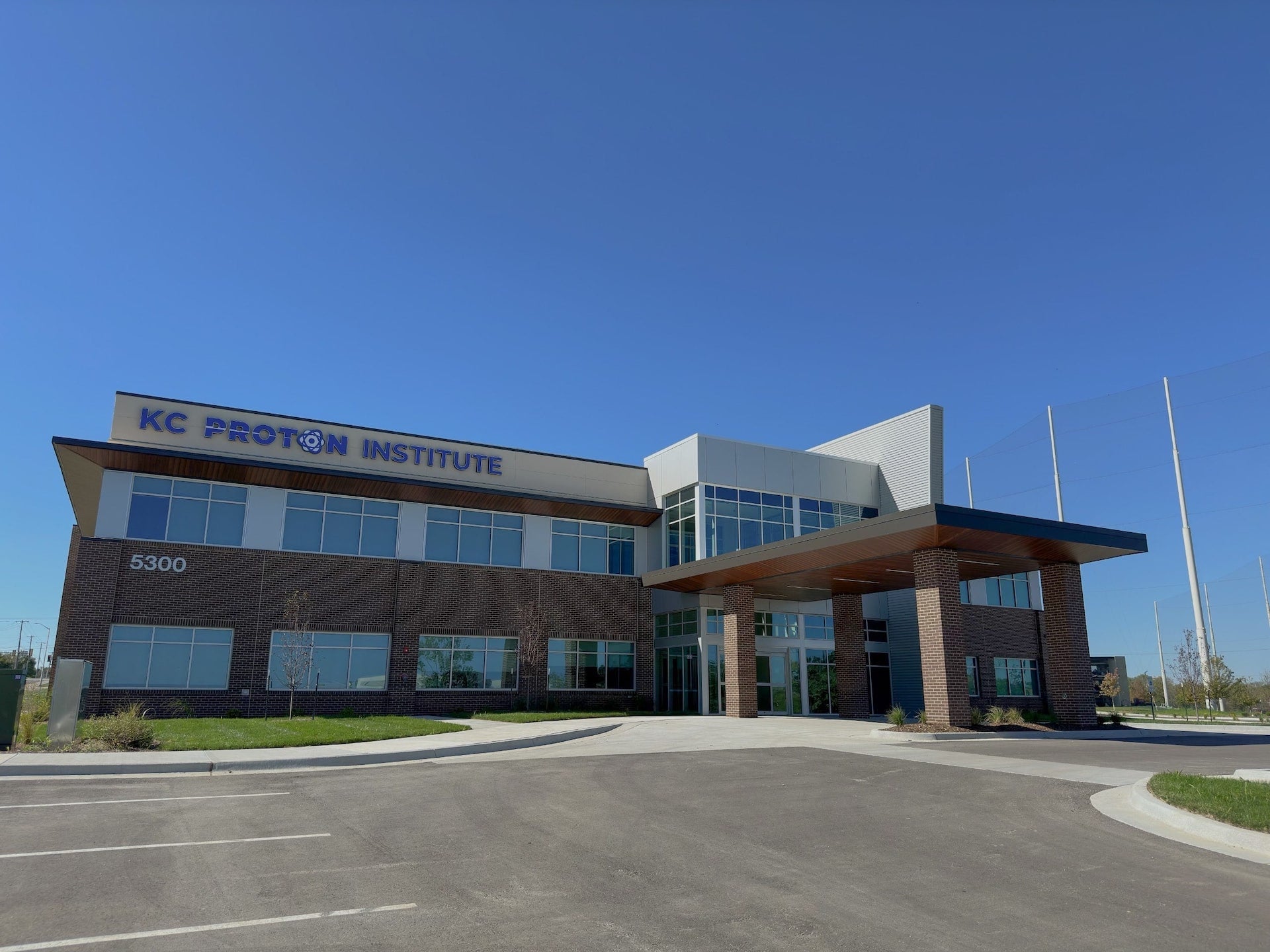
Proton Therapy FAQs: Answering Your Most Commonly Asked Questions
You’ve probably heard of proton therapy by now. Proton therapy is a newer type of radiation treatment that is extremely precise and reduces side effects when compared to traditional X-ray radiation therapy. At Kansas City Proton Institute (KCPI), we are one of two places you can go in Kansas to receive this cutting-edge therapy. KCPI is the only office-based proton therapy center in the central United States. Because proton therapy is new, we know cancer patients have a lot of questions about it. We put together these proton therapy FAQs to help answer some of your most commonly asked questions.
Proton Therapy FAQs
What Is Proton Therapy?
Proton therapy is a radiation treatment that uses protons, positively charged particles, to target cancer cells with high precision. Unlike traditional radiation therapy, proton therapy minimizes damage to surrounding healthy tissues.
How Does Proton Therapy Work?
During proton therapy, protons are accelerated and directed at the tumor. The unique property of protons allows doctors to control the depth at which the radiation is deposited, precisely targeting the cancer cells while sparing healthy tissue.
What Conditions Can Be Treated With Proton Therapy?
Proton therapy is commonly used to treat various cancers, including prostate, breast, lung, brain, and pediatric cancers. Its ability to minimize damage to nearby organs makes it particularly suitable for treating tumors near critical structures.
Is Proton Therapy Suitable for All Cancer Patients?
While proton therapy is effective for many types of cancer, not all patients are candidates. The decision to use proton therapy depends on factors such as the type and location of the tumor, overall health, and the patient’s medical history. A comprehensive evaluation by a medical team helps determine the best course of treatment.
Are There Any Side Effects of Proton Therapy?
Proton therapy generally has fewer side effects compared to traditional radiation therapy. However, some patients may experience mild side effects such as fatigue, skin irritation, or nausea. These side effects are typically temporary and subside after the treatment is complete.
How Long Does a Proton Therapy Session Typically Take?
The duration of a proton therapy session varies depending on the type and stage of the cancer being treated. On average, each session can last between 15 to 45 minutes. The overall treatment course may span several weeks.
Is Proton Therapy Covered by Insurance?
Many insurance providers recognize the efficacy of proton therapy and cover it as part of their plans. However, coverage can vary, and patients should check with their insurance providers to determine the extent of coverage for proton therapy.
Where Can I Find Proton Therapy Centers?
Proton therapy centers are becoming more widely available, but are not present in every region. Kansas Citians are very lucky because they have a choice of two locations – one hospital-based downtown, and Kansas City Proton Institute (KCPI) in Overland Park, the only office-based proton therapy center in the central United States. Both offer excellent care, but office-based proton therapy centers offer some advantages that hospital-based centers can’t.
How Is Proton Therapy Different from Traditional Radiation Therapy?
Traditional radiation therapy uses X-rays, which pass through the body, affecting both cancerous and healthy tissues. Proton therapy, on the other hand, deposits the majority of its energy directly at the tumor site, reducing damage to surrounding healthy tissues. This also results in fewer/milder side effects from treatment.
Are There Age Restrictions for Proton Therapy?
Proton therapy is suitable for patients of all ages, including children and older adults. Its precision and ability to spare healthy tissues make it an attractive option, especially for pediatric cancer cases.
Can Proton Therapy Be Combined with Other Cancer Treatments?
Yes, proton therapy can be combined with surgery, chemotherapy, and other cancer treatments. The decision to use a combination of therapies depends on the specific characteristics of the cancer and the patient’s overall health.
What Research Supports the Effectiveness of Proton Therapy?
Numerous clinical studies have demonstrated the efficacy of proton therapy in treating various types of cancers. Ongoing research continues to explore its benefits, particularly in reducing long-term side effects and improving overall treatment outcomes.
Are There Any Lifestyle Adjustments Needed during Proton Therapy?
In general, patients undergoing proton therapy can maintain their regular daily activities. However, some adjustments may be recommended based on individual cases, such as dietary changes or modifications to physical activities.
How Is the Success of Proton Therapy Measured?
The success of proton therapy is evaluated based on the tumor’s response to treatment, reduction in cancer symptoms, and long-term outcomes. Follow-up appointments with healthcare providers include imaging studies and other tests to monitor the treatment’s effectiveness.
Can Proton Therapy Be Used for Recurrent Cancers?
Proton therapy can be a viable option for recurrent cancers, depending on various factors such as the type of cancer, location of recurrence, and the patient’s overall health. A thorough evaluation by a medical team helps determine the best course of action.
What Advancements Are Expected in Proton Therapy in the Future?
As technology and research progress, advancements in proton therapy are anticipated, leading to even more precise and personalized treatment options. Ongoing innovations aim to improve accessibility and enhance the overall patient experience.
KCPI Will Continue to Be at the Forefront of Proton Therapy
Proton therapy represents a significant advancement in cancer treatment, offering a targeted and precise approach with fewer side effects. As technology continues to evolve, KCPI will be at the forefront of understanding and implementing advancements in proton therapy. KCPI is a member of the Proton Collaborative Group, an organization comprised of many of the nation’s leading academic medical centers with proton capabilities. This organization facilitates some of the largest, most innovative clinical trials that use proton radiotherapy. The purpose of these trials is to clarify, improve upon, and analyze results from proton treatment of several different types of cancer. These trials represent the most advanced, cutting-edge applications of proton radiotherapy.
Advantages of Office-Based Proton Therapy
Kansas Citians have a choice when it comes to proton therapy treatments. KCPI is the only office-based proton radiation facility in the central United States. We can offer this new type of cancer treatment at a lower cost and with more convenience for our patients. We are proud to be able to make this cutting-edge treatment accessible to more individuals in need and bring the advantages of office-based proton therapy to KC.




